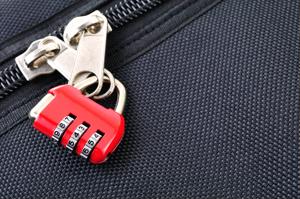Safety tips for the modern traveler

Stick to all necessary precautions and best practices to ensure your next trip is safe, fun and productive.
9/28/2020
There's so much to think about when you're planning a vacation or a business trip. Where to go, what to do, which airline to take (or avoid) because of its amenities, whether to stay at a hotel or hostel...the list goes on. As a result, it's easy to get wrapped up in other preparations and forget about the essential issue of safety.
Whether you're traveling to an unfamiliar destination for business or pleasure, it's vital that you learn about any security issues you might encounter beforehand. Once you get there, stick to all the necessary precautions and best practices that will ensure your trip is nothing but fun, productive or both, depending on your purpose.
Do your research
American travelers have a few easily accessible resources for learning about unfamiliar destinations. The first is the Central Intelligence Agency's World Factbook. This public CIA database serves as a crash course in the essential information of the world's countries, from geography and ethnic diversity to summaries of their various sociopolitical issues and historical conflicts.
You may find the the Department of State's website even more helpful - specifically its section on travel warnings and alerts. Here, you'll find detailed, up-to-date explanations of a given country's safety issues, stemming from crime, civil unrest, natural disasters and other causes. Alerts pertain to hazards that are expected to pass, such as a flood season or a surge in political discontent that isn't likely to affect areas frequented by tourists. Warnings are issued in more serious circumstances, like countries affected by war, sectarian clashes, frequent terrorist incidents or violence tied to the drug trade, and the State Department generally advises against visiting those countries, full stop.
Registering with the embassy
It's simple enough to just avoid a country if you're choosing a vacation spot, but on business trips you have no choice. This in no way means you're in danger by default, though - you just have to take advantage of all available safety resources.
Perhaps chief among these is registering yourself in the State Department's Smart Traveler Enrollment Program. Doing so informs the American embassy offices in a given country that you're there and allows them to locate you. Embassy officials will get all necessary authorities involved should anything happen. Frankly, enrolling in STEP is a good idea for any U.S. citizen abroad, even when you're on vacation in a nation widely known as a safe place to visit.
Additionally, USA Today noted that taking a picture of your passport and saving it to your mobile device is a wise fail-safe if you lose it or store it in the hotel safe while you're out and about.
General safety tips and precautions
With all of the serious hazards noted above, you might forget about basic safety practices that apply anywhere. For example, USA Today pointed out that automobile accidents are the primary cause of death for Americans in foreign countries - deadlier at a more frequent rate than disease or violence. As such, avoid public transportation on vehicles that don't look up to snuff and exercise the same caution if you rent a car abroad.
USA Today also recommended having emergency supplies in your car if driving in an unfamiliar location, like first-aid supplies, a spare battery or charger for your mobile, food and water, spare tire and gauge and similar items.
At your hotel, exercise caution whenever anyone you don't know is requesting entry to your room. If you hear a knock on the door and someone announcing themselves as room service, call the front desk and confirm that they sent someone up. Finally, make sure that any valuables are kept in the room's safe - or the hotel's own safe, if they offer that service.
Wherever your travels may take you, a great trip requires planning, reliable information (like Travel Guard Travel News articles) and a little bit of luck. And seasoned travelers know that when you travel, no matter how much you plan, sometimes things happen. When you run into unexpected issues, Travel Guard travel protection plans are here for you. If you're new to travel insurance, we have several pages that can help you compare plans and provide examples of why you should buy travel insurance for your upcoming trip.

